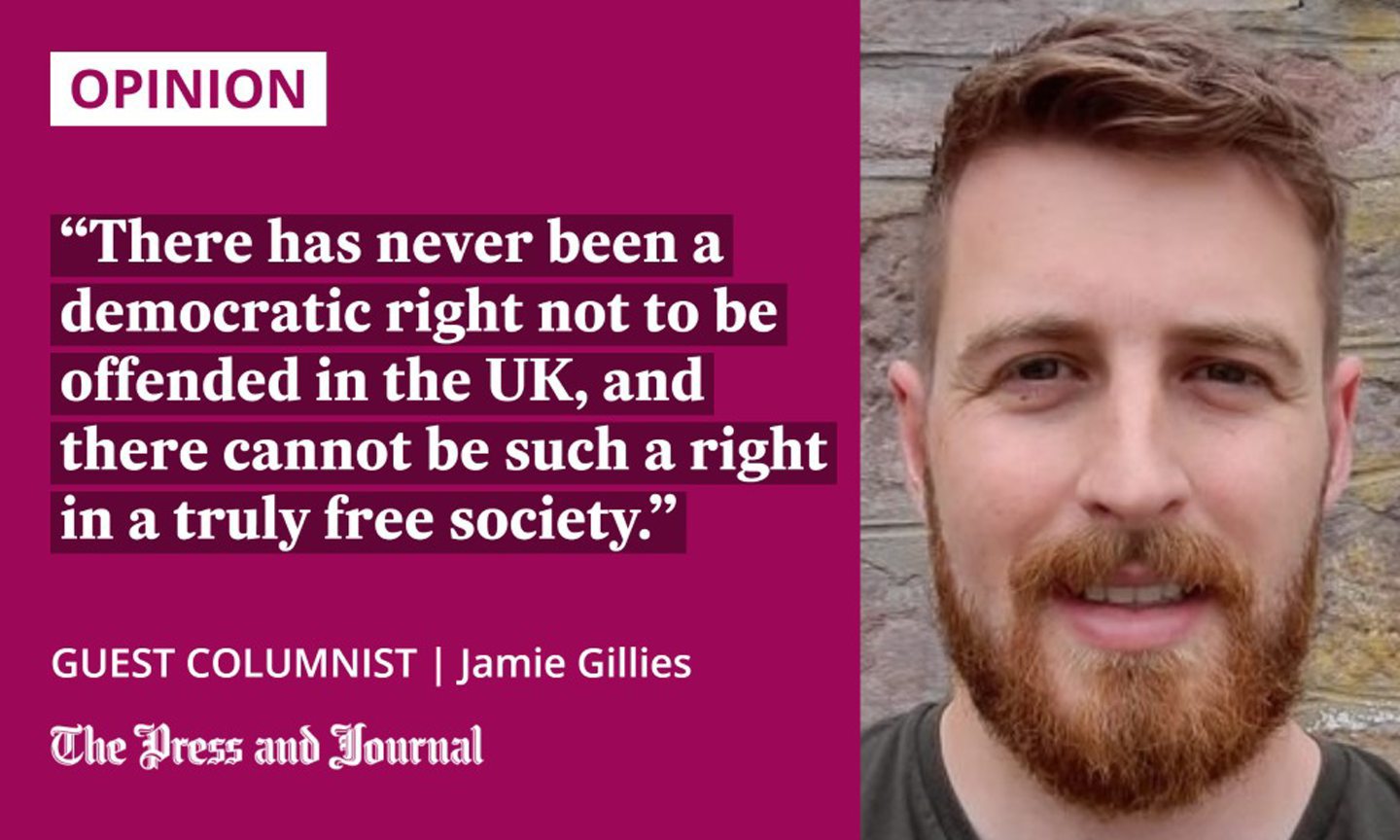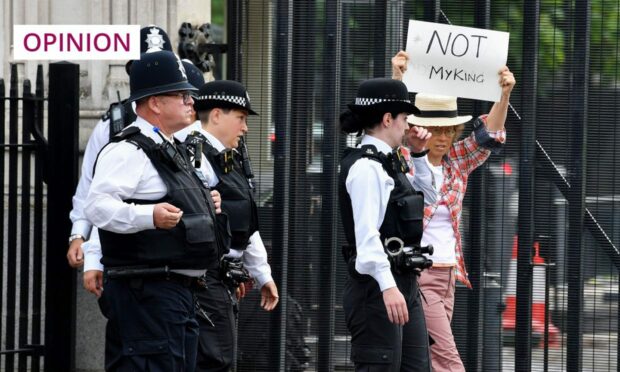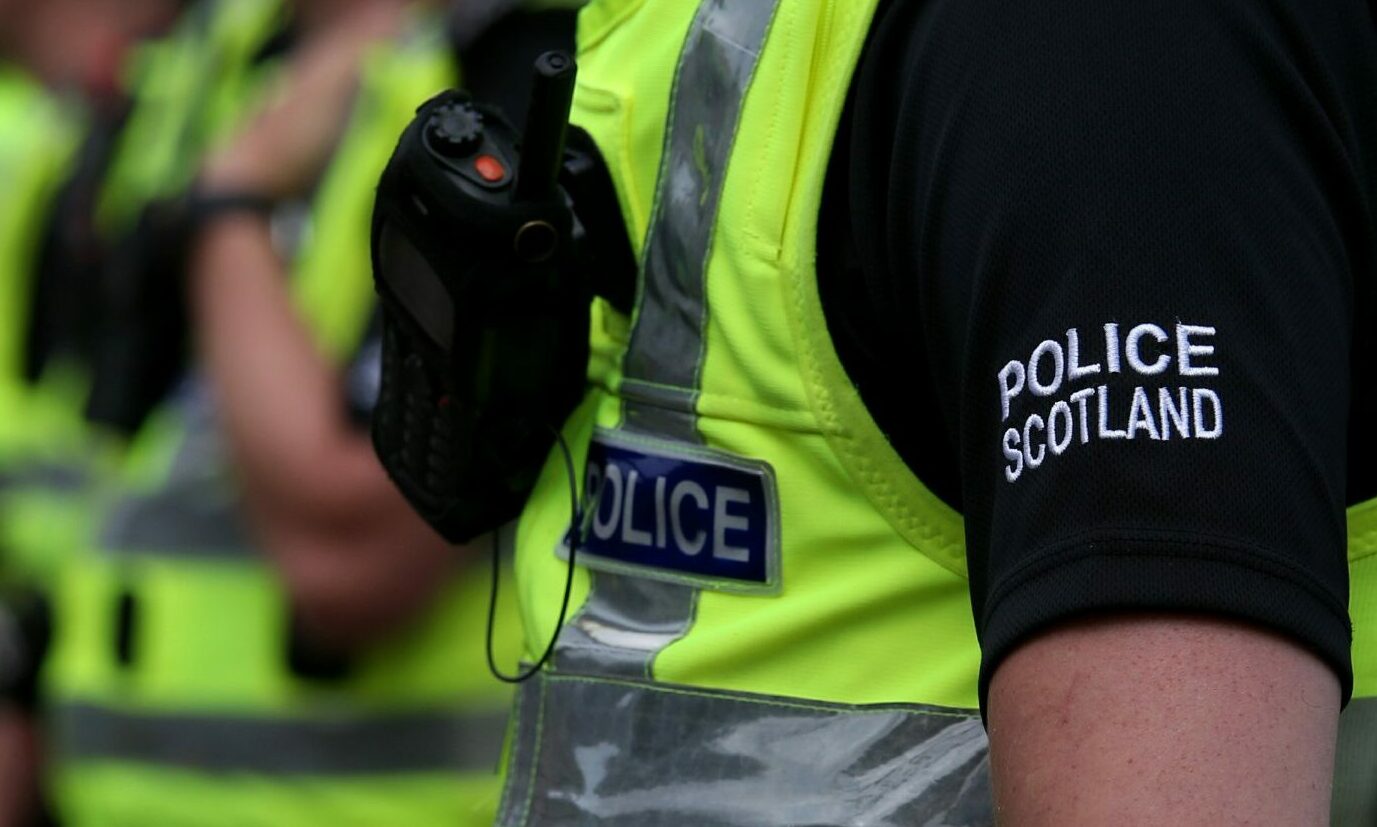Police action against anti-royalist protesters has come under the spotlight across the UK this week.
One demonstrator, arrested for holding an anti-monarchist sign, has now been charged with an offence and faces a hefty fine or even imprisonment.
This arrest followed an incident involving another protester, who was led away by police after holding up a placard bearing the phrase: “Not my King”. Another man, who shouted: “Who elected him?” at a procession honouring King Charles III – was also arrested, then de-arrested, by officers.

Concerned about these incidents, one barrister decided to go to a London gathering, hold up a large, blank piece of paper and see what happened. He was soon approached by an officer and asked for his details. After suggesting that he might write the words “not my king” on the paper, the officer told him not to do so, or he’d be arrested for being “offensive”.
Civil liberties groups in the UK are alarmed by these events. Ruth Smeeth, chief executive of Index on Censorship, described them as “deeply concerning”. And Silkie Carlo, director of Big Brother Watch, stressed that officers have a “duty to protect people’s right to protest” as much as “facilitate people’s right to express support, sorrow, or pay their respects”.
I concur. The actions of some protesters are seen as disrespectful. As someone who admired the Queen, I thought the timing and nature of some protests was tasteless and immature. But this is beside the point. There has never been a democratic right not to be offended in the UK, and there cannot be such a right in a truly free society.
Where wrong calls have been made, apologies should be issued
Under various laws governing public order, police officers in the UK are empowered to arrest people who are inciting violence, behaving in a threatening or abusive manner, causing genuine fear, alarm or distress in others, or risking serious disorder. Many fail to see how people holding anti-royalist signs reaches the threshold for police intervention.
The death of the Queen has brought the world's eyes to the UK, with many sharing a sense of loss. This must not provide an excuse to authoritarian governments to clamp down on protest.@RuthSmeeth joined @NickyAACampbell on @bbc5live to discuss the fundamental right to protest. pic.twitter.com/qEo3cKySi7
— Index on Censorship (@IndexCensorship) September 13, 2022
As well as maintaining order and safety, police officers are duty-bound to uphold civil liberties – to act as a dispassionate presence, ensuring both safety and free speech. This isn’t an easy job, and I sympathise with officers. But their actions against some protesters seem heavy-handed. Where wrong calls have been made, apologies should be issued.
The actions of protesters were ill-judged, sure, and perhaps there was more to the arrests than has been reported. But, criminalising people simply for holding up signs would be a stain on our democracy, anchored in liberal ideals: free speech, free conscience, and free assembly.
Causing offence is not a legal offence
In my mind, the events of recent days are symptomatic of a wider malaise affecting civil liberties in the UK. Police forces have, for example, been censured for pursuing citizens over so-called “hate incidents”, where no crime has been committed but offence – real or perceived – has been taken.
The febrile political climate we inhabit today, and the intensely personal nature of certain societal debates, clouds police judgment
Drawing red lines in this area has never been easy, but it’s even less so in modern Britain. In a context where officers are asked to deal with the subjective – hurt feelings – and enforce increasingly politicised legislation, it’s no wonder that they are confusing conduct that is offensive but legal with conduct that constitutes an actual offence.
The febrile political climate we inhabit today, and the intensely personal nature of certain societal debates, clouds their judgment still further. It is left to the courts to correct errant decisions by the police. Thankfully, recent rulings on free speech and compelled speech show that the judiciary still values fundamental civil liberties.
There is a cognitive dissonance in our society when it comes to free speech, and other rights founded upon this “bulwark of liberty”. A re-examination and rediscovery of this vital freedom is required, for everyone’s benefit. We might not like what our neighbours say at times, but our progress as a society requires tolerating others’ right to speak.
Jamie Gillies is a campaigner and commentator based in the north-east of Scotland


Conversation